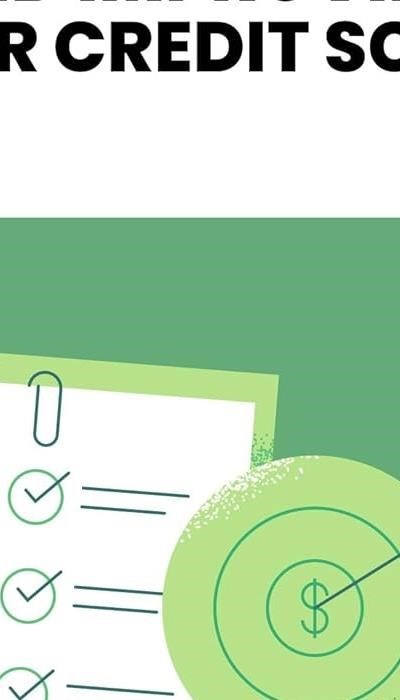
Navigating the world of credit can feel daunting, but understanding your credit report is crucial for securing favorable credit card terms and maintaining financial health. This guide provides essential insights.
What is a Credit Report?
Your credit report is a detailed record of your consumer credit history, compiled by three major credit bureaus: Experian, Equifax, and TransUnion. Lenders use this information to assess your creditworthiness when you apply for a credit card, loan, or even a rental property. Your report includes details on your payment history, outstanding debts (like credit card balances), bankruptcies, collections, and inquiries (hard and soft).
Key Components of Your Credit Report
- Payment History: This is the most significant factor (35% of your FICO score). Late payments or defaults severely impact your score.
- Amounts Owed (Debt-to-Credit Ratio): The proportion of credit you’re using compared to your total credit limit. High utilization (e.g., 80%) lowers your score.
- Length of Credit History: How long you’ve had credit accounts open. A longer history generally indicates greater responsibility.
- New Credit: Recent applications for credit (hard inquiries) can temporarily lower your score.
- Credit Mix: Having a variety of credit accounts (credit cards, loans) can be beneficial.
Credit Scores: FICO & VantageScore
Your credit report is used to calculate your credit score, the most common being FICO and VantageScore. These scores range from 300 to 850, with higher scores indicating better creditworthiness. A higher score often translates to lower interest rates and better credit card offers.
Credit Monitoring & Dispute Resolution
Regularly monitor your credit reports from all three bureaus for errors. Credit report errors can significantly damage your score. If you find inaccuracies, learn how to dispute credit report errors through the respective bureaus. Credit monitoring services can help you detect suspicious activity and potential identity theft.
Improving Your Credit Score
Improving your credit score takes time and discipline. Focus on responsible credit card usage: pay your bills on time, keep your utilization low, and avoid applying for too much new credit. Consider credit repair services if you have significant challenges. Financial literacy is key to long-term credit health.
Applying for a Credit Card
Before applying for a new credit card, check your credit report and score. A good score will improve your chances of approval and secure a better interest rate and credit limit. Remember that each credit card application results in a hard inquiry.
Beyond the Basics: Proactive Credit Management
Understanding your credit report is only half the battle. Proactive management is key to building and maintaining excellent creditworthiness. Let’s delve into strategies for maximizing your financial health.
Regular Credit Monitoring: Your First Line of Defense
We strongly advise you to regularly monitor your credit reports from all three major credit bureaus: Experian, Equifax, and TransUnion. This isn’t just about checking for credit report errors; it’s about staying ahead of potential fraud. Credit monitoring services can automate this process, sending alerts for suspicious activity and new accounts opened in your name. Early detection is crucial in minimizing the damage from identity theft.
Addressing Credit Report Errors: A Step-by-Step Guide
If you discover inaccuracies in your credit report – incorrect payment history, late payments falsely attributed to you, or even a bankruptcy you didn’t file – disputing credit report errors is essential; Each bureau has a specific process for submitting a dispute. Thoroughly document your evidence and follow their instructions carefully. Persistence is key; don’t be discouraged if the process takes time.
Understanding Your Credit Scores: FICO & VantageScore
Your FICO score and VantageScore are crucial numbers. They reflect your creditworthiness based on factors like your payment history, debt-to-credit ratio (or utilization rate), and the length of your credit history. Understanding how these scores are calculated empowers you to make informed decisions.
Minimizing the Impact of Hard Inquiries
Each credit card application results in a hard inquiry, which can temporarily lower your credit score. Avoid applying for multiple credit cards simultaneously. A soft inquiry, on the other hand, doesn’t affect your score and often occurs when you’re pre-approved for credit or check your own credit report.
Strategies for Improving Your Credit Score
Improving your credit score involves consistent responsible behavior. Prioritize on-time payments, maintain a low utilization rate (aim for under 30%), and diversify your credit mix. Avoid late payments and address collections promptly. If you’ve faced significant financial setbacks, exploring credit repair services may be beneficial, but always choose reputable companies.
Long-Term Financial Health: The Importance of Financial Literacy
Financial literacy is the cornerstone of strong credit. Understanding consumer credit, budgeting effectively, and managing debt responsibly are essential for long-term financial well-being. Seek out resources and educational materials to enhance your understanding of personal finance.
Managing Your Credit Limit Effectively
Your credit limit is the maximum amount you can borrow on a credit card. While a high credit limit might seem attractive, it’s crucial to manage it responsibly. High utilization can negatively impact your credit score, even if you pay your balance in full each month. Strive for a balance that allows you to maintain a low utilization rate.
Remember, building and maintaining excellent credit is a marathon, not a sprint. Consistent effort and informed decision-making will pay off handsomely in the long run.




A well-structured and informative piece. The breakdown of the credit report
This is an excellent introductory guide to understanding credit reports. The clear explanations of key components, like payment history and debt-to-credit ratio, are particularly helpful for those new to managing their finances. The inclusion of information on FICO and VantageScores adds practical value. I highly recommend this resource for anyone looking to improve their financial literacy.